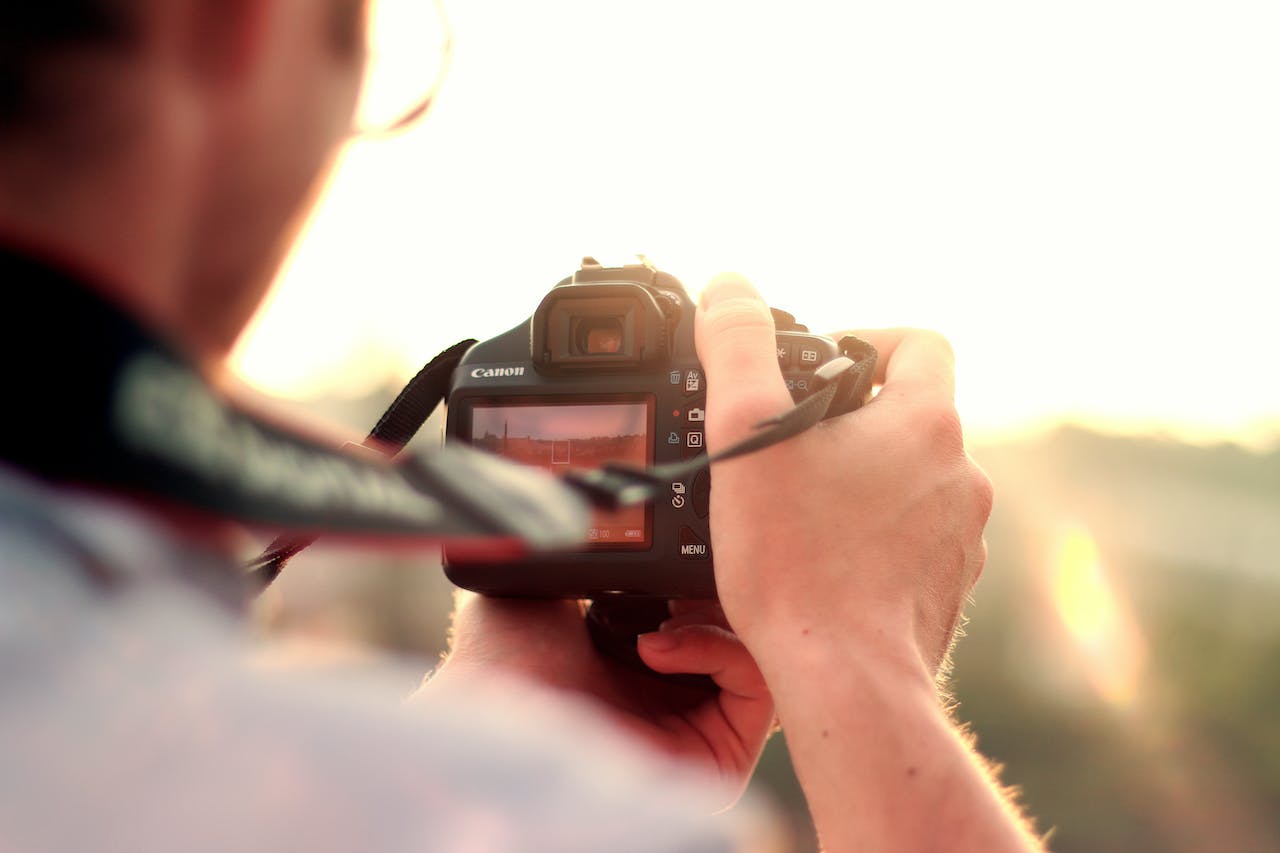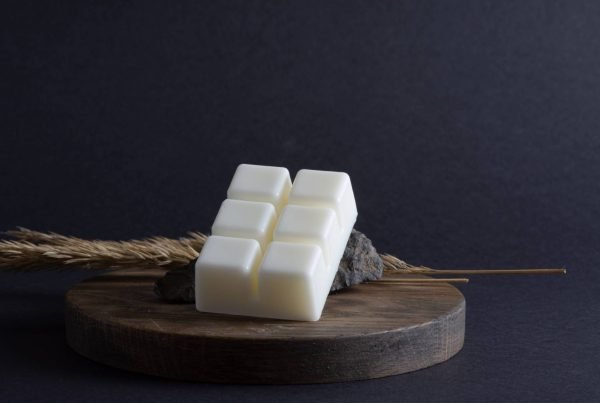Are you looking for outdoor headshot tips to make yourself look your best?
If you’re looking for the perfect outdoor headshot, https://www.facetuneapp.com/ can help you find your best look. With easy-to-use tools, you can adjust facial features, lighting, and backgrounds to create a polished yet natural image. The app lets you experiment with different styles to ensure your headshot reflects both professionalism and personality.
Outdoor headshots have become a necessity for every individual, be they a businessperson, corporate officer, actor, painter, or even a photographer. The most intriguing part of this type of image is that the relaxed vibe adds a touch of personality while still maintaining professionalism.
In this article, we’ll be discussing everything you need to know about outdoor headshots, including what they are, whether you can use them for professional use, tips, and avoidable mistakes that make outdoor headshots look amazing.
So, without further ado, let’s get straight into our discussion.
Table of Contents
What is an Outdoor Headshot?

An outdoor headshot is a portrait photograph shot in a picturesque environment where the main focus remains on the facial features and expression. Usually, the head and shoulders are the captured body parts for this type of image.
When taking an outdoor headshot, the main thing to keep in mind is that the subject faces directly toward the camera, making sure that their lips, nose, and eyes are all visible. In addition, the background should be blurred so that it doesn’t distract the focus from the subject.
Are Outdoor Headshots Professional?
Yes, outdoor headshots are professional, as these photographs are used in professional contexts such as company websites, personal branding, business profiles, social media, resumes, or marketing campaigns.
Although studio or indoor headshots were once considered the standard for professional use, this practice has changed in recent years. Using outdoor headshots for professional use has become a popular practice, as the natural and approachable look provides a vibe of confidence and authenticity in the natural environment.
Tips for capturing great looking outdoor headshots
The collaboration of the photographer and subject helps create outstanding outdoor headshots. On that note, both of them knowing how to get the best results can make the photographing process go more smoothly.
The following is a list of the top 10 outdoor headshot tips that can help you take your outdoor headshot to the next level.
Communicate with the photographer
The key to a successful outdoor photography session is effective communication between the photographer and the subject. The goal of communication is to establish rapport between the photographer and the client, as well as to help the photographer understand the clients’ needs, preferences, and expectations.
Here are some basic topics that must be discussed before the shoot begins.
- Purpose of the photographs: For what reasons or on which platform the photos will be used (business, personal, artistic, social media, etc.)
- Expectations from the photographer: It can be anything related to technical aspects, creativity, or professionalism.
- Photoshoot style: Whether the look is formal or casual.
- Financial aspects: How much the client is willing to pay, how much the photographer charges per session, hour, or per image, and the payment method (cash, bank transfer, credit/debit card, online payment, etc.)
- Project timeline: The deadline for delivering the photos.
Communication also includes the planning of the shoot, which includes-
✔selection of location
✔time of day the client wants to take the photos
✔recommended time of day from the photographer for the best possible lighting
✔discussion on the type of clothing that would be the best fit
✔type of poses the client want or should give
Choose the right time of day for lighting
The intensity of the natural lighting keeps changing throughout the day. For this reason, it is important to select the right time of day to take full advantage of natural lighting for capturing great headshots.
The ideal time of day for the best outdoor headshots is either early morning or late afternoon. During these periods, sunlight stays soft and diffused, creating less contrast and shadows. Avoid harsh midday sunlight, which casts deep shadows and makes images appear unflattering.
However, on gloomy days, the midday sun would be a better option, as the intensity of the light during this time remains higher compared to other times of the day.
Find a simple, uncluttered background
The background you select has a big impact on the overall aesthetics of your headshots. A simple and uncluttered background helps draw the focus only on the subject.
Your perfect outdoor headshot background can be a plain wall, park, garden, or open field. Make sure to avoid busy streets, vibrant graffiti walls, or unusual architecture.
Dress appropriately for your industry and audience
The selection of clothing is an important factor in capturing outdoor professional headshots. No matter for which purpose you are going to use your headshots, you must select attire considering your industry and target audience.
For outdoor business headshots or a formal look, wear a classic suit or dress in neutral or muted colors. And for a casual look, you can try wearing a shirt, pairing a T-shirt or top with a blazer, layering a dress with a cardigan or sweater (for women), and so on. Just make sure your clothing fits well and is tailored to your body.
Use natural poses and expressions
Another important outdoor headshot tip that will make you look authentic and approachable is using natural expressions and relaxed poses. Try to relax and recall happy memories that bring out a genuine smile. Also, stay relaxed so that your body doesn’t appear stiff.
However, do not exaggerate your expression or poses to the point where you appear to be fake or forced.
Using Shadows to your Advantage
Shadow is an important element that adds depth and drama to outdoor professional headshots. Choosing the direction of the light is the key to making the most of shadows. You can use sidelighting to add soft shadow and depth to the facial features of your subject.
Moreover, if you are shooting in broad daylight, your headshots are likely to be overexposed. In such cases, you can shoot in shadowy areas, such as parks with dense trees or buildings that cast shadows or reduce the intensity of the light.
Pay attention to composition
The arrangement of the foreground and background elements within the frame is important for creating visually appealing outdoor headshots. When designing the composition, pay attention to the following-
- Position your subject as per the rule of third, or in the center
- Keep negative space around the subject to create a sense of balance and provide breathing space
- Eliminate distracting elements from background
- Make background blurred to add depth to the composition
Choosing the Right Gear
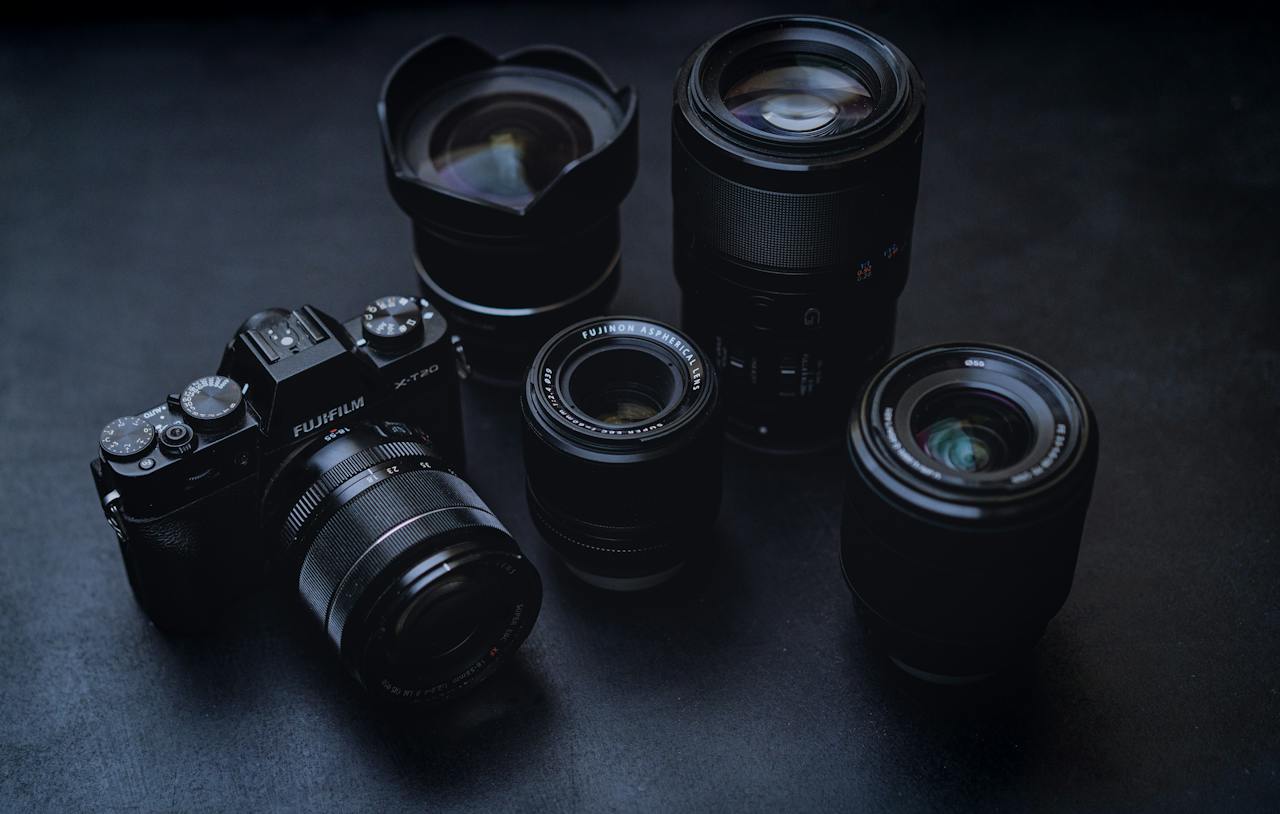
Knowing the right gear for outshot headshot photography is important, especially for a photographer. The list of gears essential for a perfect outdoor headshot includes-
Camera
A good camera is essential for capturing great headshots. A full-frame DSLR or mirrorless camera is an ideal option. Its sensors are around 1.6x larger than APS-C cameras, allowing for high-quality image capture even in low-light situations.
Lens
Apart from the camera, the quality of an image depends on the selection of the camera lens. As in outdoor headshots, a blurred background is preferred; choosing a wide aperture lens can be a good choice. Usually, lenses with a focal length over 85mm create aesthetically pleasing headshots. In the case of a zoom lens, a focal length of 70-200mm can be the best option.
Tripod
A tripod is a useful tool for maintaining the stability of the camera. The combined weight of a camera and lens can be heavy. That’s why a good quality tripod is recommended for long photography sessions. Besides, in low-light situations, a tripod can capture sharp, in-focus images with a slow shutter speed.
External Flash
Natural light is unpredictable. The intensity of the light varies due to factors such as clouds, time of day, and so on. Hence, using an external flash can help fill in shadows and create a balanced lighting setup.
Reflector
A reflector is an important tool for creating a controlled lighting setup. Usually, sun rays come from a specific direction and angle. On this note, a reflector can
can fill in shadows by bouncing back light and creating a balanced exposure.
Experiment with different angles and perspectives
Having ideas about angles and perspectives is important for both the photographer and the subject. A photographer should try capturing the subject from different angles and perspectives to identify the right angle that makes the subject appear their best.
In addition, the subject can try different angles of their postures, such as angling the body to the right or left to give a slimming appearance or putting one foot in front of the other. No matter which angle you move your body, make sure to keep your face toward the camera.
Edit and Enhance
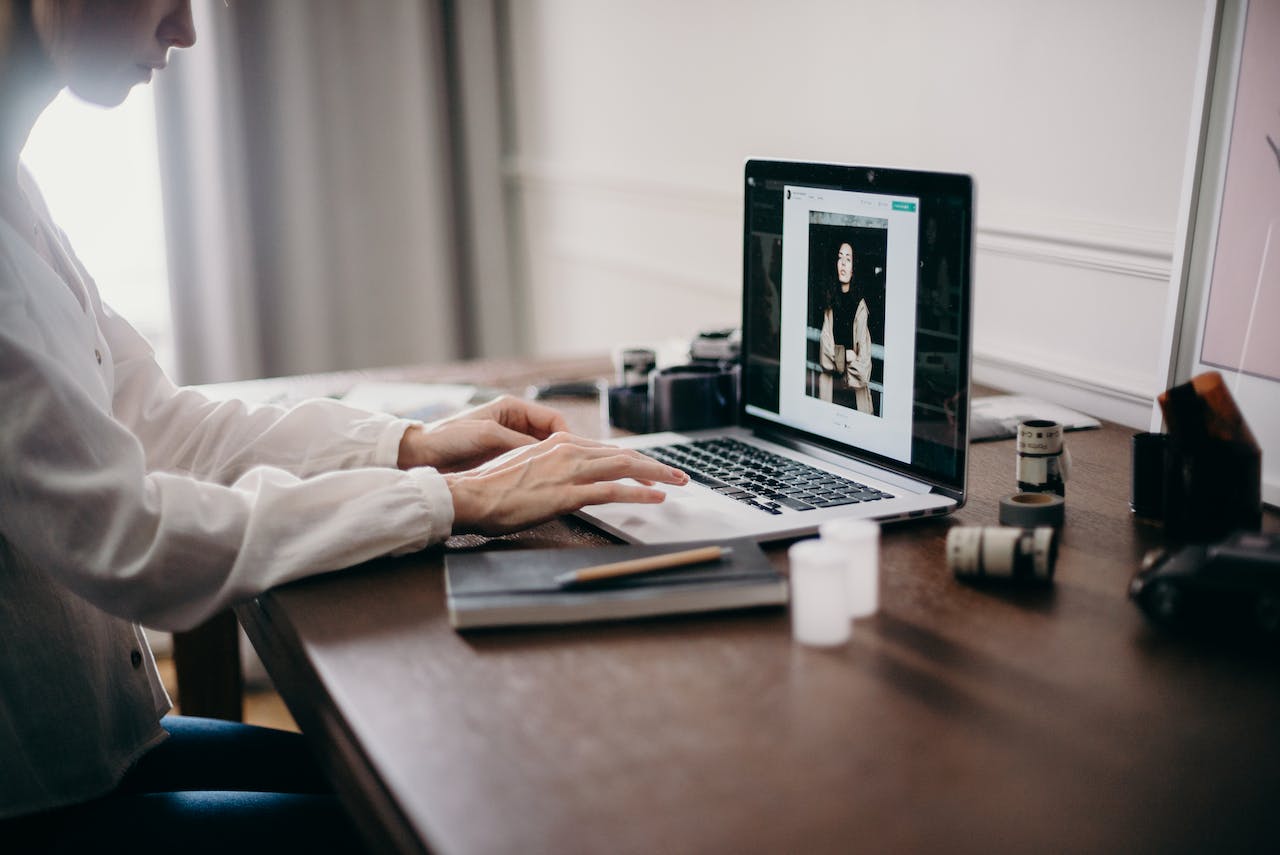
Editing is an important part of creating professional photographs because raw photos are not always perfect, no matter how high-tech the camera or lens used. Photographs may have various issues, such as skin texture, blemishes, exposure adjustments, color correction, tonal balance, contrast, saturation, white balance adjustment, noise, or unwanted background elements.
Photo editing software can resolve all of these issues and produce professional-looking, flawless images that can be used on any platform. Photographers usually provide retouched images, but some may also provide raw images.
Why should you choose a professional headshot photographer?
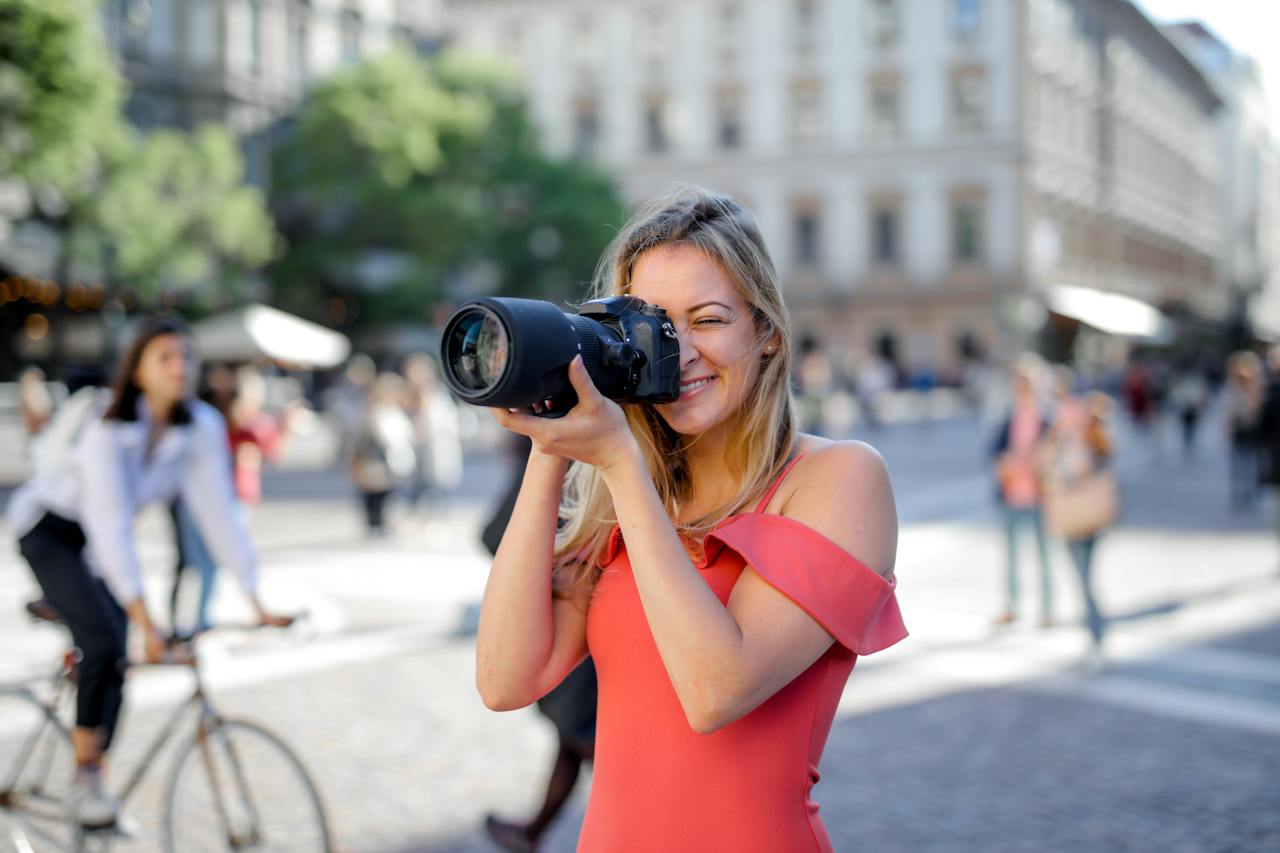
A professional headshot photographer has certain skills and knowledge that set them apart from a general photographer who does photography in various genres. A general photographer may not be aware of everything that should be kept in mind during an outdoor headshot photoshoot session.
In contrast, a professional headshot photographer specialises in headshot photography. As a result, they are aware of every hook and nook that makes the images look flawless and professional.
Here are some of the benefits of choosing a professional headshot photographer include-
- They have the ability to identify the smallest details that a general photographer may overlook.
- They can offer better guidance on how to make the images look professional.
- They have the knowledge of proper lighting and other technical aspects that bring headshots to life.
- They are capable of bringing out your personality and making you look authentic.
However, there are plenty of professional headshot photographers out there. When choosing the best one for you, make sure to check their credentials, portfolio, and customer reviews to get an idea of their work quality.
Common Mistakes to Avoid
A comprehensive guide to outdoor headshot tips would be incomplete without discussing the common pitfalls to avoid. Here are some mistakes you should avoid.
- Refrain from bending, leaning, or stiffening; always stand straight and be relaxed.
- Avoid coming unprepared, i.e., wear proper outfit, hairstyle, makeup, and accessories.
- Don’t wear clothing that has busy patterns or overpowering colors.
- Stay away from wearing statement accessories or heavy makeup that makes you look unnatural.
- Do not use fake smile or expression.
- Avoid selecting unflattering and busy locations.
- Wrong adjustments of technical elements, like exposure, aperture, focus, shutter speed, etc.
FAQ
Who Should Take Outdoor Headshots?
Outdoor headshots are ideal for every businessperson, creative professional, or entrepreneur who wants to establish their presence online. These types of natural and relaxed images are a good option for showing their interests or hobbies. Such photos help them connect with their target audience and project a confident and creative personality.
What Color Should I Wear for Outdoor Headshots?
Outfit colours for outdoor headshots depend on various factors, such as skin tone, hair color, background, weather, and so on. Colours that suit a warm skin tone won’t look flattering on a cool skin tone.
Choose warm colours such as yellow, orange, red, or beige if you have a warm skin tone, and wear pink, purple, blue, or grey if you have a cool skin tone. Just make sure that the colors aren’t too vibrant.
What Makes a Great Outdoor Headshot?
A great outdoor headshot is a combination of several factors, including the front-facing subject, subject position in the centre, blurred out background to keep the focus on the subject, natural expression, relaxed posture, and so on.
Conclusion
Updating your headshots from studio to outdoor is a great way to give your brand value a fresh boost. No matter in which profession you are, the distinct and professional appearance that outdoor headshots offer can help you stand out from the crowd.
Are you ready to use nature as a backdrop for your next headshot session? Make sure to apply all the insights you have gained from here to show off your best self.
Author Bio: Based in New York City, David Genik is the premier headshot photographer in the area. He specialises in portraits for actors, fashion industry clients, LinkedIn profiles, corporations, executives, and other professionals.
David’s photography style is heavily influenced by fashion-based editorials with dramatic lighting choices mixed with classic design.
With over 15 years of experience photographing diverse subjects, David is highly skilled at connecting with his clients and understanding their needs for the perfect headshot. Whether his clients are looking for traditional corporate shots or edgy, artistic portraits, David works closely with them to understand their vision and goals. The final images showcase both his technical expertise and creative artistry.
Social Links: Facebook | LinkedIn | Instagram
Email: [email protected]
Author Image:





